Platinum-coated titanium anodes offer significant advantages in various industries, including superior corrosion resistance, extended lifespan, and enhanced efficiency. While the initial cost may be higher, the long-term benefits make these anodes a wise investment for any business that requires durable and efficient electrochemical solutions. If you’re considering upgrading your anode materials, platinum-coated titanium anodes should be at the top of your list.

Introduction
Platinum coating on titanium anodes is a crucial technology used across various industries for its exceptional durability and efficiency. This specialized coating significantly enhances the performance of titanium anodes, making them indispensable in processes that demand high corrosion resistance and excellent electrical conductivity. Whether it’s water treatment, electrochemical reactions, or industrial catalysis, platinum-coated titanium anodes play a vital role in increasing operational efficiency and reducing maintenance costs.
This article explores the history, manufacturing processes, advantages, applications, and future developments of platinum-coated titanium anodes, providing a deep dive into how this technology can benefit your business.
History and Evolution of Platinum Coating
Platinum has been a valuable metal for centuries, primarily known for its resistance to corrosion and its excellent catalytic properties. However, it wasn’t until the early 20th century that researchers began to experiment with platinum coatings, realizing their potential for use in electrochemical processes. The development of platinum-coated titanium anodes marked a turning point in various industries, as titanium’s lightweight and strong properties were paired with platinum’s stability and conductivity.
Initially, platinum coatings were applied in niche applications such as electroplating and jewelry production. Over time, however, the technology advanced, making it suitable for industrial-scale processes like water treatment, chlor-alkali production, and fuel cell technologies.
As the demand for efficient and durable anode materials grew, the technique of coating titanium with platinum became more widespread. This innovation opened the doors for more sustainable industrial practices, providing longer-lasting solutions with reduced environmental impact.
How Titanium Anodes Work with Platinum Coatings
Titanium Anode Structure and Function
Titanium is a highly durable metal, known for its resistance to corrosion and low weight, making it ideal for use in anodes. In electrochemical processes, anodes serve as the electrode that supplies current to drive reactions in solutions like water or electrolytes. Titanium anodes are often used because of their strength, resistance to wear, and low cost compared to other metal anodes.
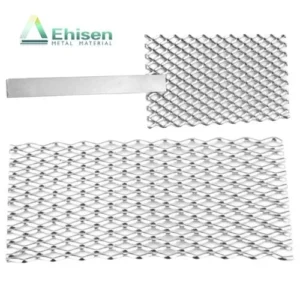
The Role of Platinum Coatings
Platinum, a noble metal, is applied as a coating to titanium anodes to enhance their performance in harsh environments. When titanium anodes are coated with platinum, they benefit from the metal’s unparalleled corrosion resistance, even in highly acidic or alkaline conditions. Platinum coatings also improve electrical conductivity, enabling more efficient electrochemical reactions.
The combination of titanium’s structural integrity and platinum’s chemical stability results in an anode that can withstand high current densities and extreme chemical environments without degrading quickly. This makes platinum-coated titanium anodes highly effective in industries like water treatment, electrochemical processes, and energy generation.
Manufacturing Process of Platinum Coatings
Platinum Coating Techniques
The manufacturing process of platinum coatings on titanium anodes involves several methods, each chosen based on the specific application and required coating thickness. The primary techniques include:
- Electroplating: This is the most common method where platinum is deposited onto titanium using an electrolytic process. The titanium anode is submerged in a solution containing platinum salts, and an electrical current is passed through the solution to deposit the platinum onto the titanium surface.
- Chemical Vapor Deposition (CVD): In CVD, platinum is deposited onto titanium in a vacuum chamber using gas-phase chemical reactions. This method allows for a thin, uniform coating and is often used in high-precision applications.
- Physical Vapor Deposition (PVD): This technique involves the evaporation of platinum in a vacuum, followed by condensation onto the titanium surface. PVD is ideal for applications requiring a high-quality, uniform coating.
Coating Thickness and Uniformity
The effectiveness of the platinum coating largely depends on its thickness and uniformity. For most applications, a thin layer of platinum is sufficient, but the coating must be evenly distributed to ensure consistent performance. The process parameters, such as temperature, current density, and deposition time, all play a significant role in determining the coating’s quality and longevity.
Advantages of Platinum Coatings on Titanium Anodes
Improved Corrosion Resistance
One of the primary reasons for applying platinum coatings to titanium anodes is to increase their corrosion resistance. Platinum is an inert metal, meaning it does not react with most chemicals, acids, or bases, even under extreme conditions. This makes platinum-coated titanium anodes ideal for applications in aggressive environments like seawater desalination, chlorine production, and electrochemical reactors.
Extended Anode Life
Platinum-coated titanium anodes significantly extend the lifespan of electrochemical cells and other industrial equipment. Traditional metal anodes can degrade quickly when exposed to high currents or harsh chemicals, requiring frequent replacements. However, platinum coatings protect the titanium from these harsh conditions, allowing for longer operational lifetimes and reduced maintenance.
Higher Current Efficiency
The application of platinum coatings enhances the anode’s ability to conduct electricity efficiently, thereby improving the overall current efficiency of electrochemical processes. This leads to lower energy consumption and reduced operational costs, particularly in energy-intensive applications like electrolysis.
Applications of Platinum Coatings on Titanium Anodes
Water Treatment and Electrolysis
Platinum-coated titanium anodes are extensively used in water treatment processes, particularly in electrochemical water disinfection and electrolysis. These anodes are used to generate chlorine or ozone, both of which are effective disinfectants for water purification systems. The durability and efficiency of platinum coatings make these anodes ideal for use in industrial-scale water treatment plants.
Chlor-alkali Industry
The chlor-alkali process, which involves the electrolysis of sodium chloride to produce chlorine gas, sodium hydroxide, and hydrogen, requires the use of durable anodes. Platinum-coated titanium anodes are used in this process due to their ability to resist the corrosive effects of chlorine and maintain high electrochemical efficiency.
Fuel Cells
In the field of renewable energy, platinum-coated titanium anodes are also used in proton-exchange membrane (PEM) fuel cells. These fuel cells require highly efficient anodes to facilitate the conversion of chemical energy into electrical energy. Platinum’s excellent catalytic properties make it an ideal choice for this application.
Electroplating and Metal Refining
The electroplating industry uses platinum-coated titanium anodes for the deposition of precious metals. These anodes offer consistent performance, high durability, and the ability to maintain high current densities, making them essential for producing high-quality metal coatings.
Cost and Economic Benefits of Platinum Coatings
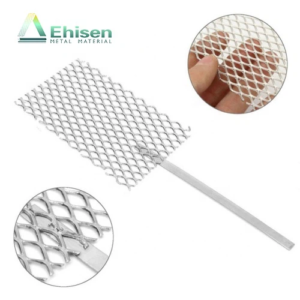
Initial Cost Considerations
Platinum, as a precious metal, is naturally expensive, and its application in coatings on titanium anodes adds to the initial capital investment. The cost of platinum itself fluctuates based on market conditions, but on average, platinum is priced at around $1,000 to $1,200 per ounce as of recent market trends (prices can vary). This price is one of the primary contributors to the cost of platinum-coated titanium anodes. The total cost of the coating also depends on several factors:
- Coating Method: Electroplating, CVD, and PVD all involve different costs. For instance, electroplating is relatively cost-effective but may require more frequent re-coating for high-performance applications. On the other hand, CVD and PVD techniques are more expensive due to the advanced equipment and controlled environments required, but they result in more durable coatings with longer lifespans.
- Coating Thickness: The thickness of the platinum coating directly impacts the cost. Thicker coatings provide more durability but increase the upfront cost. The thickness required will depend on the application; for example, water treatment systems typically require a thinner coating, whereas industrial electrolysis or chlor-alkali plants require thicker coatings to withstand harsher conditions.
- Application Requirements: Specialized applications, such as those in highly corrosive environments (e.g., deep-sea desalination plants or chlor-alkali production), may necessitate additional layers of platinum for extended performance, which further increases costs.
While these factors can make platinum-coated titanium anodes a significant initial investment, it is essential to recognize that the cost of these anodes should be viewed in terms of their total lifecycle value rather than just the upfront expense.
Long-Term Economic Benefits
While the initial cost of platinum-coated titanium anodes may seem high, businesses often see a substantial return on investment (ROI) in the long run, thanks to the enhanced durability, efficiency, and reduced maintenance costs associated with platinum coatings. Here’s a deeper look at the specific economic benefits:
1. Increased Lifespan and Reduced Maintenance Costs
One of the most compelling economic benefits of platinum-coated titanium anodes is their extended lifespan compared to other types of anodes. Titanium itself is highly resistant to corrosion, but when coated with platinum, its performance in aggressive environments (e.g., high acid, saltwater, or alkaline conditions) is significantly improved.
For example, in the chlor-alkali industry, where titanium anodes are subjected to chlorine and high current densities, platinum coatings can last up to 15-20 years, whereas non-coated titanium anodes might need to be replaced every 3-5 years. This durability reduces the frequency of anode replacements, saving businesses substantial amounts in terms of purchasing new anodes, installation costs, and downtime.
In a water treatment system, the cost of maintaining non-coated titanium anodes could easily range from $50,000 to $100,000 per year due to corrosion and the need for frequent replacements. By investing in platinum-coated anodes, which can last 3 to 5 times longer, companies can reduce this maintenance expenditure to approximately $10,000 to $20,000 per year, depending on the scale and specific usage.
2. Energy Efficiency and Reduced Operational Costs

Another significant benefit is the energy efficiency provided by platinum coatings. Platinum enhances the electrochemical properties of the titanium anodes, reducing the amount of electrical energy needed to drive electrochemical reactions. This leads to lower overall energy consumption.
For example, in the electrolysis of water or in the chlor-alkali process, platinum-coated titanium anodes allow for more efficient current flow, which results in a 5-15% reduction in energy consumption. In large-scale industrial settings, this can translate into savings of $50,000 to $200,000 annually, depending on the size of the operation and the energy intensity of the process.
Furthermore, platinum coatings improve the current efficiency, leading to faster processing times and higher output rates. For industries such as electroplating, where high throughput is crucial, this translates into increased production capacity, which can contribute to higher revenue streams and lower unit costs.
3. Reduced Downtime and Increased Productivity
Downtime is one of the most significant costs in industrial processes. When non-coated anodes degrade or fail, they must be replaced, which causes interruptions in production and can affect profitability. Platinum-coated titanium anodes, with their longer lifespan and higher durability, significantly reduce the likelihood of failure and, consequently, downtime.
In a large-scale electrochemical process, unplanned downtime due to anode failure can cost companies anywhere between $10,000 to $50,000 per day in lost production and repairs. By reducing the frequency of anode replacements and ensuring consistent performance, platinum-coated titanium anodes can reduce this downtime by as much as 80-90%, resulting in cost savings and more consistent productivity.
4. Overall Return on Investment (ROI)
Given the combination of reduced maintenance costs, energy savings, and minimized downtime, the ROI from investing in platinum-coated titanium anodes is significant. For example, in the chlorine production industry, where anodes must perform under extreme conditions, investing in platinum-coated titanium anodes can result in an ROI of 200-300% over the lifespan of the anodes.
Although the initial cost of platinum coatings might be 2-3 times higher than traditional titanium anodes, the long-term benefits typically outweigh this investment, especially when considering:
- Lower operational costs
- Fewer replacements
- Reduced energy consumption
- Enhanced productivity
While the upfront cost of platinum-coated titanium anodes may appear substantial, their long-term economic benefits make them a smart investment for businesses looking to maximize efficiency, durability, and profitability. The improved lifespan, reduced maintenance, enhanced energy efficiency, and lower downtime collectively lead to significant cost savings over the years. As industries move toward more sustainable and cost-effective solutions, platinum-coated titanium anodes stand out as a reliable choice that delivers both performance and economic value.
How to Choose the Right Platinum-Coated Titanium Anode
When selecting platinum-coated titanium anodes for your specific application, it’s crucial to evaluate several important factors. These factors ensure that the anode you choose will meet the operational demands, maximize performance, and provide long-term value. Below, we will break down these factors in more detail to help guide your decision-making process.

1. Application Type
The application you intend to use the platinum-coated titanium anode for plays a significant role in determining the right specifications for the anode. Different applications have unique requirements in terms of coating thickness, anode shape, and performance characteristics. Below are some examples of how the application type affects the choice of platinum-coated titanium anodes:
- Water Treatment: In water treatment applications such as electrochemical disinfection or desalination, anodes are exposed to highly corrosive environments, and energy efficiency is crucial. Generally, water treatment systems require thinner platinum coatings (ranging from 0.5 to 5 microns), as the focus is on maximizing the efficiency of the electrochemical reactions while maintaining the longevity of the anode. Thin coatings are often sufficient for these applications because they can provide excellent resistance to corrosion without adding excessive cost.
- Electrolysis and Chlor-Alkali Production: For electrochemical processes like the chlor-alkali process, where titanium anodes are used to electrolyze sodium chloride and produce chlorine gas, sodium hydroxide, and hydrogen, the anodes must endure harsher conditions. In such cases, thicker platinum coatings (around 10 to 50 microns) are required to prevent rapid degradation under high current densities and aggressive chemicals like chlorine and caustic soda. This thickness ensures that the anodes can withstand the corrosive environment for extended periods without failing prematurely.
- Electroplating: In the electroplating industry, where precision and consistent performance are critical, platinum-coated titanium anodes are used for the deposition of precious metals like gold, silver, and platinum. The coating thickness for electroplating typically ranges from 5 to 20 microns. These anodes need to provide high surface area and uniform current distribution to ensure a smooth and even metal layer is applied.
When choosing an anode, you should carefully assess your specific application needs to determine the appropriate coating thickness, performance features, and surface area requirements. If you are unsure, it is always advisable to consult with an industry expert or supplier to tailor the product to your application.
2. Environmental Conditions
The environmental conditions under which the platinum-coated titanium anode will be used play a critical role in its performance and lifespan. The following factors should be considered:
- Temperature: Platinum-coated titanium anodes can function across a broad temperature range, but elevated temperatures can impact both the coating and the substrate’s longevity. For example, high-temperature environments (above 100°C) require thicker coatings and may demand additional engineering solutions to prevent the anode from degrading prematurely. In contrast, lower temperature operations (below 50°C) may allow for the use of thinner coatings while still providing robust performance.
- Chemical Exposure: Titanium anodes coated with platinum are highly resistant to corrosion; however, they can still be vulnerable to certain harsh chemicals, especially in extreme acidic or alkaline environments. Applications such as seawater desalination, chlorine production, and chemical processing may involve continuous exposure to highly corrosive agents like chlorine, hydrochloric acid, or sodium hydroxide. The more aggressive the chemical exposure, the thicker and more uniform the platinum coating should be. For example, in seawater electrolysis, where the anode is exposed to saltwater, a thick, uniform platinum coating (20 to 50 microns) is essential to ensure long-lasting performance.
- Current Density: High current densities, which are common in applications like electrolysis and fuel cells, lead to increased wear and tear on anodes. The higher the current density, the more resistant the anode must be to localized corrosion and erosion caused by the intense electrical activity. Therefore, choosing an anode with a thicker platinum coating (often above 10 microns) is recommended for high-current applications to reduce the potential for damage and to ensure consistent efficiency over time.
In addition to temperature, chemical exposure, and current density, consider factors like humidity (in applications involving gas or liquid electrolytes) and pH levels of the electrolyte, as they can also impact the anode’s performance.

3. Supplier Reputation
Choosing the right supplier is one of the most important aspects of selecting the best platinum-coated titanium anode for your needs. A reputable supplier not only provides high-quality products but also ensures that the specifications match your application requirements. Here’s why the reputation of your supplier matters:
- High-Quality Manufacturing Standards: Established suppliers who specialize in platinum-coated titanium anodes will adhere to strict quality control standards. This ensures that every anode produced is of consistent quality, with the correct platinum coating thickness and uniformity. A reputable supplier will provide detailed specifications for each batch of anodes, ensuring that the product meets your performance and durability expectations.
- Customization and Technical Expertise: When dealing with complex applications, it is crucial to work with suppliers who can customize the anodes according to your specific environmental conditions and application requirements. Experienced suppliers have the knowledge and capabilities to tailor the platinum coating to optimize efficiency, longevity, and performance. They should also be able to offer expert advice on the best anode design, coating thickness, and material properties for your needs.
- Product Warranty and After-Sales Support: A reliable supplier offers strong warranties on their products, ensuring that you have protection against manufacturing defects or premature failure. In addition to the warranty, after-sales support is vital for troubleshooting and ensuring the proper installation and maintenance of the anodes. The supplier should provide technical support and guidance, especially for large or complex installations.
- Track Record in Your Industry: A reputable supplier should have a proven track record in the industry, particularly within your application type. Check for case studies, client testimonials, and success stories related to your specific use case (e.g., water treatment, electroplating, or chemical processing). Industry experience ensures that the supplier understands the challenges you face and can deliver the right solution.
- Regulatory Compliance: The supplier should ensure that the anodes meet all relevant industry standards and regulations, such as ISO certifications and any specific local or international environmental standards.
Key Questions to Ask Your Supplier:
- What is the expected lifespan of the platinum-coated titanium anodes for my application?
- Can you provide a specification sheet detailing the coating thickness, uniformity, and chemical composition?
- Do you offer customization options based on my specific environmental conditions?
- Can you provide examples of similar applications where your anodes have been successfully used?
- What warranties and after-sales support do you offer?
Conclusion
The future of platinum coatings on titanium anodes is exciting, with advancements in nanotechnology, environmental sustainability, and coating techniques on the horizon. Research is ongoing into more cost-effective and environmentally friendly ways to apply platinum coatings, such as using less platinum without sacrificing performance.
Platinum-coated titanium anodes offer significant advantages in various industries, including superior corrosion resistance, extended lifespan, and enhanced efficiency. While the initial cost may be higher, the long-term benefits make these anodes a wise investment for any business that requires durable and efficient electrochemical solutions. If you’re considering upgrading your anode materials, platinum-coated titanium anodes should be at the top of your list.

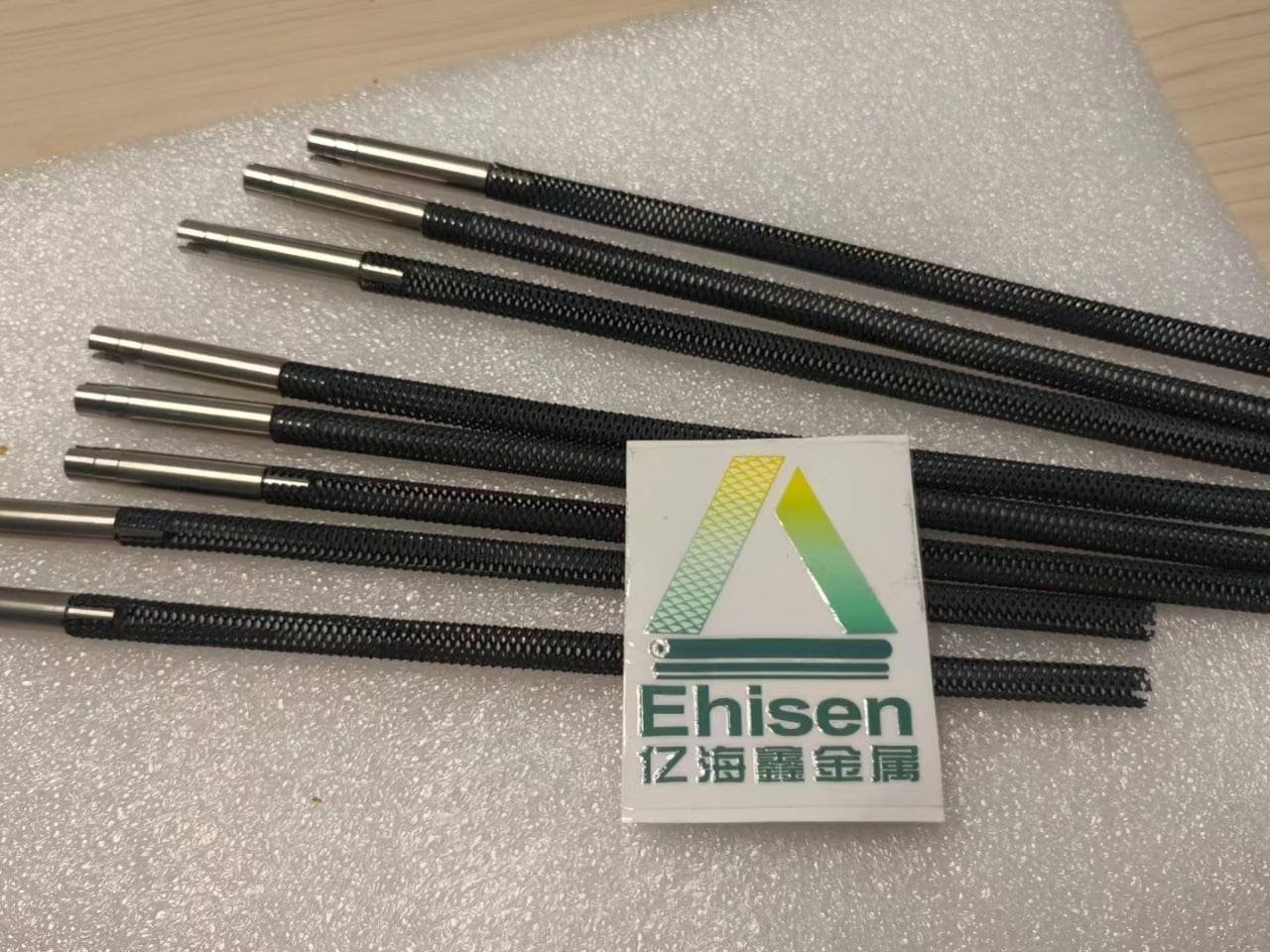

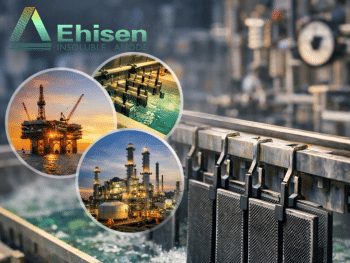

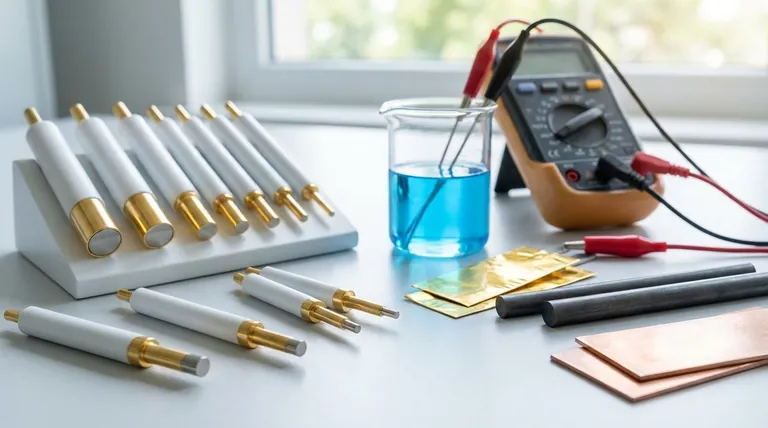
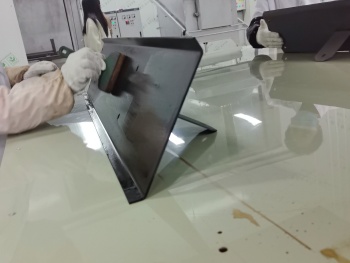

2 Responses
A very insightful perspective on the matter.
Thank you for your recognition. As a manufacturer of titanium anodes, we will regularly share more information, hoping it will be of assistance to you.